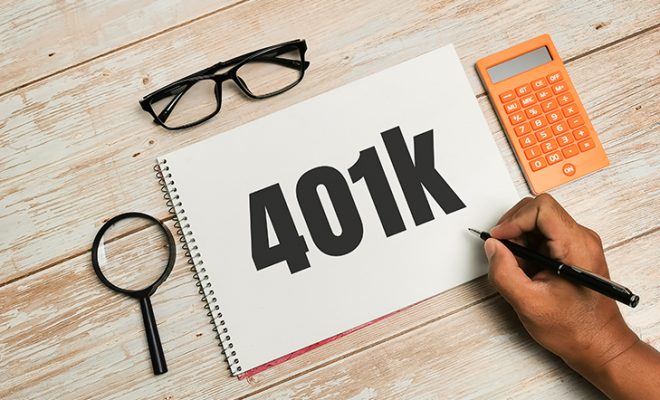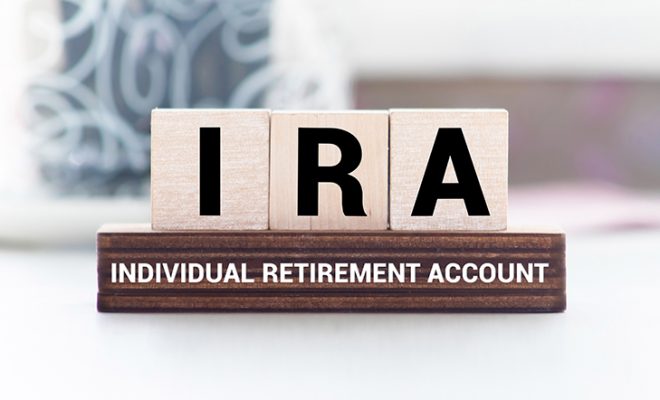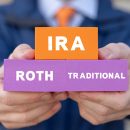Expected Changes to a 401(k) Retirement Account in 2021

The 401(k) retirement plan is one of the most commonly used retirement savings accounts in the country. These employer sponsored plans allow employees to save for a financially comfortable and stable retirement. Moreover, with the employer contributions, the savings increase with time. There are also several other factors that make a 401(k) account a popular choice. The ability to take a loan against the savings, picking out different investments to gain maximum returns, etc., are some of the account’s advantages.
While the contribution limits for 401(k)s tend to change every now and then, the year 2021 is expected to bring in many more changes to the retirement account. Whether an employee is just beginning their career and looking for an instrument to save for retirement or whether investors have been saving in a 401(k) for a while now, these changes can make a difference to everyone’s retirement corpus.
Read on to know the expected changes to a 401(k) retirement account in 2021.
2021 401(k) rules
The year 2021 has changed many things in the US. A new president and with the Covid-19 vaccination, the ordeals of 2020 are expected to be over soon enough. Addressing the topic of retirement accounts, President Joe Biden has proposed some changes to 401(k) accounts. Here are some of them:
- A tax credit instead of a 401(k) tax deduction
In order to understand the tax credit, it is first important to note how a 401(k) works presently. Before 2021, one could set aside some funds in a 401(k) account for the purpose of retirement and defer paying tax on these funds until they were withdrawn in retirement. This was a good strategy for investors who expect a lower income in retirement, as their tax liability then would be lower than it was in the present. President Biden has a new proposal, known as a tax credit instead of a tax deduction.The proposed tax credit is aimed at bringing in more equality for different income groups, regardless of a person’s income. The limit for the tax credit has been proposed at 26% as per joebiden.com. So, a 26% flat rate tax credit would be given on every $1 that is contributed to a 401(k) account. The tax credit would be calculated as per the contribution and deposited into the employee’s retirement account as a matching contribution. Moreover, the tax credit is also likely to be applied to other retirement plans, such as a 403(b) account meant for employees of nonprofit organizations, universities, and the government. 457 accounts for state and local government employees will also have this tax credit in place of a tax deduction.The tax credit can be refundable too. So, employees who do not earn a high income can still benefit from the credit. The minimum tax credit for a 401(k) account in 2021 could be approximately $2,000 for individuals, whereas a married couple filing their income tax jointly can enjoy a total tax credit of $4,000. The maximum income for the tax credit will be $33,000 for individuals and married couples filing separately, $49,500 for the head of the household, and $66,000 for married couples filing jointly.
- Income limit modifications for the year 2021
Employees can contribute up to $19,500 to a 401(k) plan in 2021. This is the same as it was in 2020. The additional catch up contribution in 2021 is also the same as it was in 2020 at $6,500 for investors aged 50 or more. However, the general limit of employer and employee contributions has been increased. In 2020, the limit was set at $57,000 and $63,500 with the catch up contribution. In 2021, this has been increased to $58,000 and $64,500 with the catch up contribution. However, if an investor is contributing to more than one 401(k) account like a Roth 401(k) and a traditional 401(k), the income limits will apply to both the accounts together. This implies that investors can contribute a total of $19,500 to both accounts and not $19,500 in each account.These income limits also apply to a 403(b) account, some 457 accounts, and the federal government’s Thrift Savings Plan (TSP). - A 401(k) retirement account will be available to all workers
Since a 401(k) retirement account is an employer sponsored retirement account, not everyone can be a part of it. This can rob many employees of the opportunity to take advantage of an employer retirement or pension plan. However, President Biden has proposed a 401(k) retirement account for all employees, even those who do get one offered at their workplace. An automatic 401(k) for all employees can be used by workers irrespective of their jobs or industries. The government is aiming to make 401(k)s available to private as well as government employees. - Caregivers can also make catch-up contributions
As per the existing rules, employees need to earn an income to be able to qualify for a 401(k) retirement account. However, President Biden has proposed to allow caregivers to make catch up contributions even in the absence of an earning. The proposal states that caregivers who have not worked for a year or more will be able to make catch up contributions to their 401(k) retirement account. With the new rule, caregivers of all ages can make an additional catch up contribution of $6,500 to their retirement account. This option is currently available to investors aged 50 or more only. However, there will be no age limit for caregivers. - Employers can match employee contributions by 100%
Employers may contribute up to 100% of their employee’s contributions in 2021. So, for a total contribution of $19,500 for an employee, the employer could match the contribution with $19,500, as long as the total figure is not more than the employee’s salary. But an important part to consider here is that while this is a great opportunity to build up a retirement corpus, not all employers would contribute 100% of their employee’s contributions. And the final decision lies with the employer. - Retirement plan loans are still available from a 401(k)
In 2020, people were allowed to take a loan of up to $100,000 from their 401(k) account as opposed to $50,000 in 2019 under the Coronavirus Aid, Relief, and Economic Security Act (CARES Act). Not only this, but they were also allowed to push the repayments for a year. The same option is available to contributors in 2021 as well. However, investors need to meet the qualified disaster requirements that state that a person should have lived in a qualified disaster area and suffered from financial repercussions due to a disaster.
To sum it up
The new 401(k) retirement account changes are expected to bring in more equality for different types of investors. The tax credit and the catch up contributions can allow people to create a bigger retirement savings fund. While the extension on loans can help many people cover up for the losses incurred in the previous year. Only time can tell how these changes will impact people in America, but the reactions have been positive so far.
If you are looking for additional help to take advantage of these changes in your retirement planning, you can use our free tool to get in touch with up to 3 financial advisors in your area to find the one best suited to your needs.










